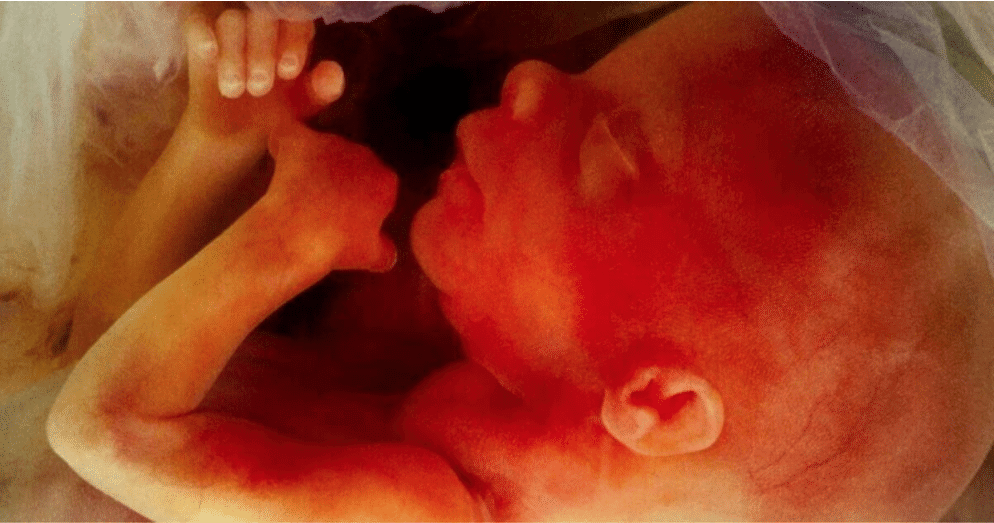It is extraordinary that anyone could oppose the creation of a scientific committee to investigate the pain which can be experienced by an unborn child.
Lord Alton
House of Lords
22nd March 2024
My Lords, in declaring non-financial interests as listed in the register, I express my gratitude to the noble Lord, Lord Moylan, for bringing in this Bill. I entirely endorse what my noble friend Lady Smith of Newnham has said to the House today. Being pro-life—for a woman and a child—and believing in the right to life as a human right does not make people misogynist bigots, and they should not be caricatured as such.
During the passage of the Animal Welfare (Sentience) Act 2022, I wrote that it left a gaping hole because of the lack of any comparable mechanism for the consideration of the human foetus, a point the noble Lord made earlier. I agree with what CS Lewis said in support of the National Anti-Vivisection Society: if you start by being cruel to animals, you will also end up being cruel to human beings. It is that incongruity, and how we treat the most vulnerable of our own species, that is close to my heart, and I make no apology for that.
In the 18th century, Jeremy Bentham argued that the relevance of pain was not dependent on the ability to think rationally, but rather to feel, as animals can do. In 1789 he wrote,
“the question is not, Can they reason? Nor, can they talk? But, can they suffer?”
There is an analogy here with foetal sentience, one which emerged in two ad hoc inquiries held in Parliament and in which I took part, one chaired by the late Lord Rawlinson of Ewell, a former Solicitor-General. We said that, like a newborn infant, a foetus may not be rational in the way an older child or adult is, but, if there are grounds to believe that a child in the womb may be able to suffer, we have a responsibility to do what we can to minimise such suffering. If we are uncertain about the exact point at which, and by how much, an unborn baby suffers, we should always err on the side of caution.
The noble Lord, Lord Moylan, referenced, by implication, Professor John Wyatt, who has three decades of experience treating extremely premature babies, including a large number born at 22 or 23 weeks, below the current abortion time limit. A few years ago, when addressing parliamentarians, in sobering evidence, Professor Wyatt told us that there was a link between what the foetus and premature babies experience. He said:
“I think from my observation of extremely premature babies that they are sentient, they are conscious, and they are responsive to their environment”.
Why should we care? First, this is a human rights issue. The preamble to the UN Convention on the Rights of the Child, to which the UK is a signatory, states that the child
“needs special safeguards and care, including appropriate legal protection, before”—
please note that word—
“as well as after birth”.
We have obligations that must be honoured, and how will we do that without expert research or guidance policy?
Secondly, as we have heard from the noble Lord, Lord Robathan, barbaric, discriminatory legislation permits abortion up to and even during birth in the cases of Down’s syndrome—it was World Down Syndrome Day yesterday—club foot and cleft lip and palate. As the noble Baroness told us, the NHS recommends the use of analgesics when performing foetal surgery on babies with spina bifida after 20 weeks, but pain relief is not mandatory for foeticide abortions.
Noble Lords should study the recommendations of the UN Committee on the Rights of Persons with Disabilities and attempts in the other place, in one instance, to increase the opportunities of abortion right up to birth in all cases, and, in another, to lower the abortion time limit from 24 to 22 weeks, in line with the increase in survival rates of babies born at 22 and 23 weeks. I also gently point out that, as long ago as 1988, I succeeded in the House of Commons in persuading 296 MPs—a majority of 45—to vote for my Bill to reduce the upper time limit to 18 weeks, the Swedish upper time limit. It would have saved the lives of some of the 10 million babies who have been aborted in Britain, but it was talked out by opponents. The case today is even more compelling; please note that the EU average upper time limit is around 12 weeks, with many Parliaments greatly influenced by the questions of sentience and pain.
In other areas of medicine, the precautionary principle is often applied: the idea that, where there is uncertainty, we should err on the side of caution. So, it seems to me that we ought to be prudent when it comes to foetal sentience.
I end with Professor Wyatt’s words:
“I think we should play safe, we should give the foetus the benefit of the doubt. We should assume that it is capable of experiencing pain and unpleasant sensations, and we should then treat the foetus appropriately, which would if necessary be with strong pain relief medication or with anaesthesia”.
This is both sensible and humane. A foetal sentience committee, which is all that the noble Lord, Lord Moylan, is asking us to support today, would enable us to increase our understanding in this area. I therefore commend the Bill to the House, and I gently say to my friend, the noble Baroness, Lady Kennedy of The Shaws, that Article 3 of the Universal Declaration of Human Rights states:
“Everyone has the right to life”.
Supporting that does not make me right wing, a bigot or a misogynist.



